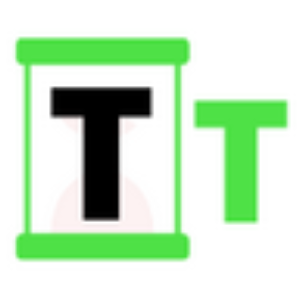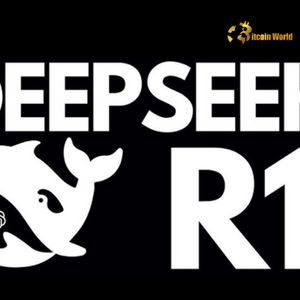Mango Markets Case Dismissed While Durov Denied Oslo Forum Entry
6 min read
In two separate but symbolically significant legal developments impacting the crypto and tech worlds, a US court has dismissed key fraud charges against Avraham Eisenberg over the Mango Markets exploit, while Telegram founder Pavel Durov has been barred by French courts from attending the Oslo Freedom Forum in person. Both cases show the increasing tension between decentralized technologies and established legal systems, raising questions about the evolving relationship between law, jurisdiction, and digital rights. Mango Markets Hacker Acquitted of Fraud Charges in Major Legal Setback for DOJ A US judge has thrown out key fraud convictions against Avraham Eisenberg, the trader accused of orchestrating a $110 million exploit of decentralized finance (DeFi) platform Mango Markets. The ruling is a significant development in one of crypto’s most closely watched courtroom battles, raising pressing questions about jurisdiction, legal definitions of fraud, and the limits of regulation in decentralized finance. Judge Arun Subramanian of the Southern District of New York ruled Friday that Eisenberg could not be convicted in the venue where the case was brought, vacating two counts of fraud and acquitting him of a third, wire fraud-related charge. The judge found that prosecutors failed to establish sufficient ties between Eisenberg’s actions and the jurisdiction of the New York court. In a sharply worded opinion, Judge Subramanian said prosecutors could not prove that Eisenberg, who was operating from Puerto Rico at the time of the incident, had any actionable connection to New York. ”He didn’t make trades in New York, call or email anyone in New York, or go to New York in connection with his scheme,” Subramanian wrote. “There is no allegation that the Mango Markets platform had ties to New York.” The Department of Justice had previously argued that Eisenberg’s use of an automated trading platform hosted on servers based in New York, along with the fact that at least one Mango Markets user from New York attempted to withdraw funds during the incident, should qualify as sufficient grounds for venue. But Subramanian found those arguments lacking, determining that the evidence presented at trial fell short of establishing venue under constitutional and statutory standards. Even more striking was the judge’s decision to acquit Eisenberg on a third count, wire fraud, not only due to venue issues but also on substantive grounds. Eisenberg’s trading activity, which involved manipulating Mango’s price oracle to inflate the value of his collateral before taking out massive loans, was not found to violate existing wire fraud statutes. “On a platform with no rules, instructions, or prohibitions about borrowing, the government needed more to show that Eisenberg made an implicit misrepresentation by allowing the algorithm to measure the actual value of his collateral,” Subramanian wrote. Eisenberg had defended his actions as legal, arguing that he simply executed a well-designed arbitrage strategy on a poorly architected platform. His legal team consistently maintained that no formal guidelines or safeguards were in place to prevent the strategy he used. A Blow to Prosecutors—and a Warning About DeFi Regulation The outcome represents a serious blow to federal prosecutors, who had aimed to set a precedent in holding individuals accountable for manipulation on decentralized protocols. With Mango Markets operating as a decentralized autonomous organization (DAO) and its codebase open to all, Eisenberg’s case has served as a bellwether for how US law might be applied to DeFi platforms. Legal experts are divided on the implications. Some argue the ruling highlights the urgent need for updated regulations that reflect the structure and behavior of decentralized platforms. Others see it as a cautionary tale for regulators attempting to apply legacy legal frameworks to crypto-native environments. While Eisenberg may have sidestepped a major legal challenge tied to the Mango exploit, he is not free of legal jeopardy. In April, he was sentenced to four years in prison for possession of child sexual abuse material, an unrelated charge that carries serious consequences. That conviction stands independently of his activity in the crypto markets. Now, Justice Department officials must determine whether to refile charges related to Mango Markets in a more appropriate venue. Given the complexity of DeFi operations and the ambiguity in current law, that decision could have far-reaching implications. The case also comes amid the backdrop of Mango Markets’ own demise. Once seen as a promising DeFi protocol built on the Solana blockchain, the platform officially ceased operations earlier this year following a string of controversies, governance disputes, and ongoing litigation. The Eisenberg exploit in October 2022 was widely blamed for hastening the platform’s decline. After draining over $100 million in value from the protocol, Eisenberg briefly returned a portion of the funds under a governance agreement with Mango’s DAO, only to later be arrested in Puerto Rico by US authorities. Pavel Durov Barred from Oslo Freedom Forum by French Court Amid Free Speech Dispute In other legal news, Telegram co-founder Pavel Durov, a prominent voice for digital privacy and freedom of speech, will no longer attend the Oslo Freedom Forum in person after French courts denied his request to travel to Norway. The decision has stirred backlash among free speech advocates, especially amid escalating concerns over political censorship in Europe. Durov, who resides in France, had been slated to headline the Oslo Freedom Forum, which is an influential global event organized by the Human Rights Foundation (HRF), with a keynote speech championing individual liberty and resistance to authoritarian overreach. While he will still appear virtually via livestream, his absence from the physical stage has sparked questions about the motivations behind the travel restriction and broader implications for dissent in the tech world. Human Rights Foundation Condemns Travel Ban The HRF publicly criticized the French judiciary’s move, calling it an affront to the ideals the forum seeks to uphold. “It is unfortunate that French courts would block Mr. Durov from participating in an event where his voice is so needed,” said HRF founder and CEO Thor Halvorssen in a statement released over the weekend. The Oslo Freedom Forum is known for convening dissidents, journalists, activists, and technologists committed to the cause of human rights. Durov, widely viewed as one of the tech industry’s most uncompromising advocates for privacy and decentralization, has been a regular figure at such events. The controversy over Durov’s travel ban comes just days after the Telegram founder accused French intelligence services of pressuring him to censor conservative political content on Telegram ahead of Romania’s upcoming elections. According to a Telegram post on May 18, Durov described a private meeting in Paris where Nicolas Lerner, head of France’s General Directorate for Internal Security (DGSI), allegedly made the request. “This spring at the Salon des Batailles, in the Hôtel de Crillon, Nicolas Lerner, head of French intelligence, asked me to ban conservative voices in Romania ahead of elections. I refused,” Durov wrote in a follow-up post on X. “We didn’t block protesters in Russia, Belarus, or Iran. We won’t start doing it in Europe.” Though initially vague about the official and the country involved, Durov’s direct accusation against Lerner has since reverberated through tech and policy circles, particularly in the context of increasing government scrutiny over encrypted messaging platforms and their role in electoral integrity. In his May 18 Telegram post, Durov pushed back against what he described as the hypocrisy of European officials attempting to justify censorship in the name of democracy. Durov has previously stated that if pressured to implement political censorship or surveillance measures, Telegram would exit the affected market rather than compromise its users’ rights. This stance has earned him both praise and criticism from governments around the world. Legal and Political Fallout in France The travel ban has fueled speculation that French authorities may be retaliating against Durov’s refusal to cooperate with intelligence demands. Legal experts note that while Durov’s legal issues in France have not been made public in detail, the move to bar him from attending a human rights forum abroad is “highly unusual” and potentially politically motivated. Durov’s allegations and the French court’s ruling come at a sensitive time for the European Union, which has been intensifying its regulatory oversight of tech platforms under the Digital Services Act (DSA). The legislation mandates stricter content moderation practices and imposes penalties for platforms deemed to enable misinformation, hate speech, or election interference. While the DSA aims to protect users and uphold democratic norms, critics argue it grants governments excessive leverage over platform content and opens the door to politically biased censorship. Durov’s claims suggest that such powers may already be used to manipulate political narratives. Telegram, which boasts over 900 million users globally, has emerged as a critical tool for activists and dissidents across authoritarian regimes. Its refusal to compromise on encryption and user privacy has placed it at odds with authorities in countries such as Russia, Iran, and now, seemingly, within the European Union.

Source: Coinpaper



